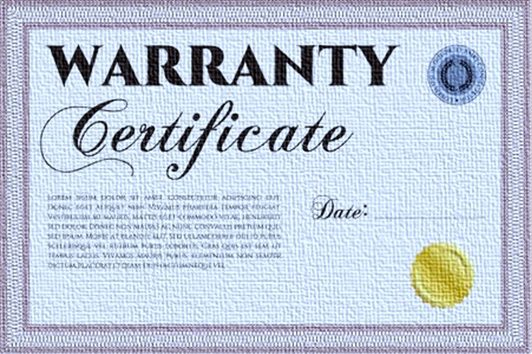Business
Business Owners: How to Get the Most from Your Warranties
There is comfort in knowing your equipment will be repaired or replaced if it malfunctions, but many businesses never get the maximum benefits from their warranties.
Product warranties are just a normal part of doing business. When you buy something, especially tech equipment, you’re most likely going to get a basic warranty and be offered an extended warranty. Not getting a warranty can be disastrous, but it’s no different from having a warranty you never use.
There is comfort in knowing your equipment will be repaired or replaced if it malfunctions, but many businesses never get the maximum benefits from their warranties. Are you one of these businesses?
If you paid for a product, you deserve to have your warranty honored to the letter. Here are some tips to get the most out of every warranty you have:
1. Create a warranty tracking system
Maintenance and repair costs can be enormous. Your warranties can reduce these costs, but you need to track your warranties and repairs to get the benefits. The reason is, even small claims for minimal dollar amounts are not as trivial as they might seem.
Start a tracking system for your warranties so that you know the terms, maximums, minimums, valid date ranges, and the cost and time to renew. Each time a problem arises, file a claim and document the details in your tracking system.
The most important part of a warranty tracking system is educating your team. People won’t necessarily remember every detail of a warranty, so make sure your team is trained to refer to your documentation to verify when and how to request a service call. This is important for ensuring you get properly reimbursed.
Tracking your warranties can also tell you if you need to purchase extended coverage. For example, if you keep having the same issue or you find yourself struggling with needs outside your original warranty, having every incident documented will paint a clear picture of your need for extended coverage.
2. Be selective with extended warranties
You may have read somewhere that extended warranties aren’t worth the money. For most consumer products like small appliances, smartphones, speakers, and laptops, that’s true. These extended warranties aren’t expensive, but neither are the repairs.
If you’re using these types of consumer devices in your business – like employee-issued laptops or coffee makers in the office – be selective with the extended warranties you buy. Some electronics cost less than $20 to repair, but the plans can cost more than $130.
Before buying an extended warranty, do some research to find out the cost of repairing common issues. Do the math. If the risk is an expensive one, you might need the extended coverage. If not, don’t bother.
However, if your electronics contain proprietary components, like Apple products, you may want to get extended coverage from the manufacturer to avoid more expensive repairs if someone else’s attempt at repair doesn’t go well.
3. File claims
Did something small break or malfunction? File a claim. Don’t take the hit for small things, even when you or an employee knows how to fix something. Each time you repair something yourself, you’re losing money.
Lost money from self-repairs might not seem like a big deal. What’s $20 or even $100 here and there? However, multiply that money by the number of items you have that will need repairs over time, and you’re looking at thousands, if not tens of thousands of dollars wasted.
If you’ve been given a warranty with your purchase, or you’re paying extra for a warranty, get a technician out for all repairs that fall under the warranty. You’ll not only save money, but you’ll also save time.
4. Don’t worry about self-repairs voiding warranties
Have you heard that repairing something yourself voids your warranty? This clause might even be explicitly stated inside your warranty. Even so, this type of clause is illegal on a federal level in the United States.
Under the Magnuson-Moss Warranty Act, the following type of warning is illegal: “Using non-branded parts or allowing third-parties to repair this product will void your manufacturer’s warranty.” The Federal Trade Commission (FTC) considers these restrictions to be deceptive.
While it’s good to call in repairs under your warranty, don’t worry about voiding your warranty if you need to repair something that isn’t covered. You can legally repair your devices on your own or through a third party without voiding your warranty even when your warranty states such repairs will make it void.
Always do your research
Before purchasing an extended warranty, do your research first. Find out if the cost is comparable to repairs, and if not, skip the extension and save your money.








